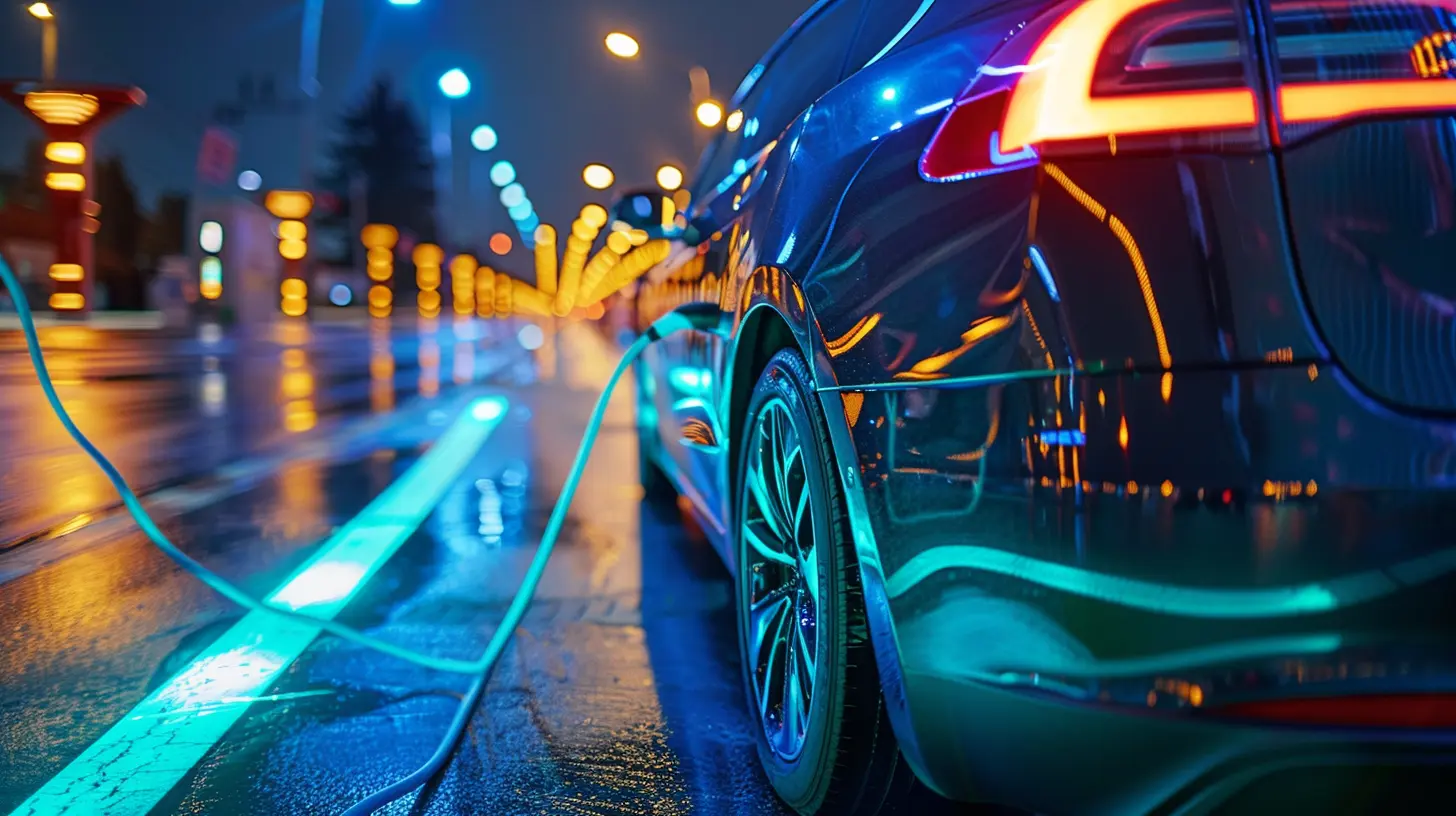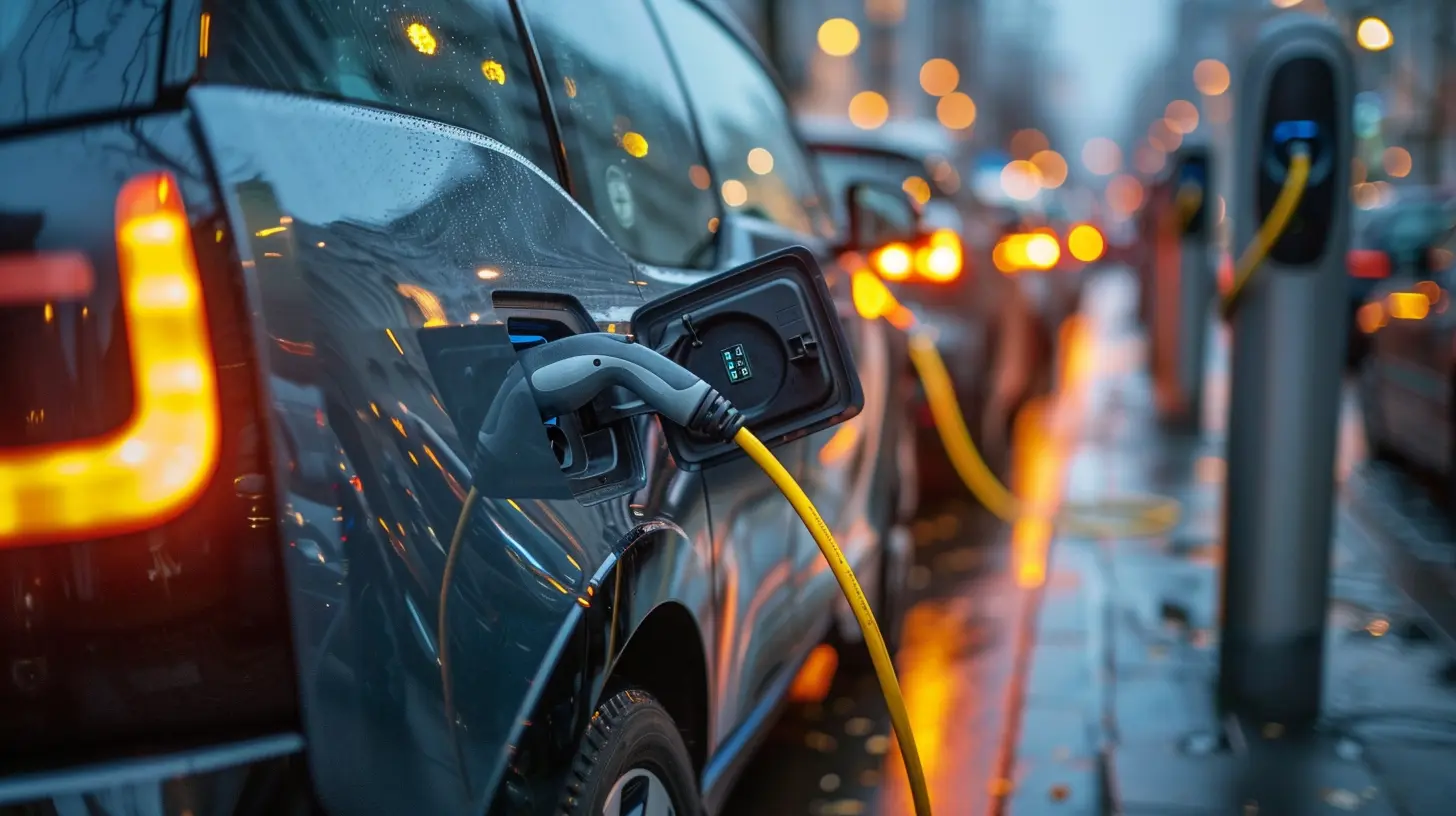Electric Vehicles: Driving the Future of Green Transportation
27 April 2025
The age of electric vehicles (EVs) is here, and it's not just a passing trend—it's a revolution. With climate change concerns and the rising cost of fuel, EVs have positioned themselves as the future of transportation. But are they really the game-changer we hope for, or just another technological fad? Let’s break it down and see why these vehicles are shaking up the industry and reshaping our roads.

The Rise of Electric Vehicles
Remember when people thought electric cars were just fancy toys for the rich? Well, that’s no longer the case. Over the past decade, EVs have gone from niche products to mainstream options, with companies like Tesla, Ford, and even traditional automakers like Toyota and Honda jumping on board.Why the sudden shift? Simple—people are realizing that EVs aren’t just about being eco-friendly. They also offer better performance, lower running costs, and a glimpse into a future where gas stations might become obsolete.

Why Electric Vehicles Are Taking Over
Let’s be real—there’s no one single reason for the EV boom. Instead, it’s a perfect storm of factors pushing people towards electric mobility.1. Environmental Benefits
Climate change is a pressing issue, and gas-powered vehicles are major culprits. Traditional cars burn fossil fuels, releasing carbon dioxide and other pollutants into the air. EVs, on the other hand, produce zero tailpipe emissions. Sure, their electricity source matters, but even when charged from fossil fuel power plants, they are still cleaner than gasoline-powered cars.Governments worldwide are pushing for stricter emission regulations, and EVs fit the bill perfectly. With sustainability becoming more important, the switch to electric is no longer an option—it’s a necessity.
2. Lower Running Costs
Let’s talk money. EVs might cost more upfront, but when it comes to running costs, they blow traditional cars out of the water. Here’s why:- Charging is cheaper than refueling – Electricity costs significantly less than gasoline, and with solar panels, some EV owners charge their cars almost for free.
- Fewer moving parts – An EV doesn’t have an engine, transmission, or exhaust system that requires expensive maintenance. Say goodbye to oil changes and engine repairs!
- Regenerative braking – EVs use regenerative braking to recharge while slowing down, reducing wear and tear on brakes.
Over time, these savings add up, making EVs a smart long-term investment.
3. Improved Battery Technology
Remember when EVs had terrible range and took forever to charge? That’s old news. Today’s EVs offer ranges of over 300 miles per charge, and fast-charging networks like Tesla’s Supercharger or Electrify America mean you can juice up in under an hour.Battery technology is improving rapidly, with solid-state batteries on the horizon. These promise even better energy density, faster charging, and longer lifespan. Long story short—range anxiety is slowly becoming a thing of the past.
4. Government Incentives
Governments around the world are encouraging people to switch to EVs through tax credits, rebates, and other incentives. In the U.S., for example, EV buyers can get federal tax credits of up to $7,500, depending on the model. Many states and countries offer additional perks, such as free parking, carpool lane access, or reduced registration fees.When the government is literally paying you to go electric, why not take advantage of it?
5. Better Performance
If you’ve ever driven an electric vehicle, you know what I’m talking about. EVs deliver instant torque, meaning you get lightning-fast acceleration with zero lag. Cars like the Tesla Model S Plaid can go from 0-60 mph in under 2 seconds!Beyond speed, EVs offer a smoother, quieter ride. There’s no engine noise, no vibrations—just pure, seamless motion. It’s a driving experience unlike any other.

The Challenges Holding EVs Back
Of course, it’s not all sunshine and charging stations. EVs still have some hurdles to overcome before they completely take over.1. Charging Infrastructure
Gas stations are everywhere, but EV chargers? Not so much. While charging networks are expanding, range anxiety is still a problem for many people. If you don’t have a home charger, finding a convenient and fast charging station can be tricky.2. Higher Upfront Costs
EVs are getting cheaper, but they still cost more than their gas-powered counterparts. The battery is the biggest reason for this price gap, but as production scales up and technology improves, prices will continue to drop.3. Battery Recycling and Environmental Impact
Yes, EVs are cleaner than gas-powered cars, but their production still has some environmental downsides. Mining lithium, cobalt, and other materials for batteries can be harmful to the environment. However, efforts to improve battery recycling and develop more sustainable alternatives are already underway.
The Future of Electric Vehicles
So, where are we headed? The truth is, EVs are not just here to stay—they’re going to dominate. Automakers across the globe are investing billions into electric technology. Some have even announced plans to phase out internal combustion engine (ICE) vehicles entirely within the next decade.Here’s what the future of EVs looks like:
1. More Affordable Models
As battery technology advances and production scales up, EV prices will continue to drop. Soon, they’ll be just as affordable—if not cheaper—than traditional cars.2. Faster Charging
Charging times will get shorter with advancements in ultra-fast charging technology. Some companies are even working on wireless EV charging, meaning you won’t have to plug in at all!3. Longer Battery Life
Future EVs will have batteries that last hundreds of thousands of miles with minimal degradation. That means fewer replacements and even better overall cost savings.4. Increased Renewable Energy Integration
Pairing EVs with renewable energy sources like solar and wind will make them even more sustainable. Imagine charging your car exclusively with solar power—zero emissions, zero fuel costs!5. Autonomous Driving and Smart Features
The future of transportation isn’t just electric—it’s also autonomous. EVs will integrate more AI-driven features, such as self-driving capabilities, smart navigation, and vehicle-to-vehicle communication.Final Thoughts
Electric vehicles are no longer just a glimpse of the future—they’re the present. Whether you’re looking to save money, reduce your carbon footprint, or simply enjoy a smoother driving experience, going electric is a no-brainer.Yes, there are still challenges, but with rapid advancements in technology, infrastructure, and sustainability, those hurdles are getting smaller by the day. Soon enough, gas-powered cars will feel like relics of the past, much like the flip phones we left behind.
So, are you ready to join the EV revolution? Because whether we like it or not, the roads of the future are going to be electric.
all images in this post were generated using AI tools
Category:
Green TechnologyAuthor:

Pierre McCord
Discussion
rate this article
5 comments
Arianth McClintock
Forget the 'horsepower’—it’s all about ‘battery power’ now! Electric vehicles are not just zipping us into the future; they’re also saving the planet one silent ride at a time. Charge up and enjoy the ride!
May 9, 2025 at 4:20 AM

Pierre McCord
Absolutely! Electric vehicles represent a crucial shift towards sustainable transportation, combining performance with environmental benefits. Let's embrace the electric future!
Lumen Lee
Exciting advancements in EVs pave the way forward!
May 1, 2025 at 2:28 PM

Pierre McCord
Thank you! Indeed, EV advancements are crucial for sustainable transportation and a greener future.
Diesel Hamilton
Great read! It’s exciting to see how electric vehicles are reshaping our roads and contributing to a greener planet. Here’s to a future where driving feels good for everyone!
April 30, 2025 at 4:13 AM

Pierre McCord
Thank you! I'm glad you enjoyed it. Exciting times ahead for sustainable transportation!
Isaac Kearns
This article beautifully highlights the transformative role of electric vehicles in promoting sustainable transportation. It's encouraging to see innovation driving us towards a greener future. Together, we can embrace these changes and make a positive impact on our planet for generations to come!
April 27, 2025 at 4:50 PM

Pierre McCord
Thank you for your thoughtful comment! I'm glad you found the article inspiring. Together, we can indeed make a positive impact on our planet!
Wendy Harris
As we accelerate into a greener future, the road ahead is shrouded in uncertainty. Electric vehicles promise sustainability, but hidden beneath sleek exteriors lies a web of ethical dilemmas and technological enigmas. Are we truly prepared for the unforeseen consequences of this electric revolution? The journey has only just begun.
April 27, 2025 at 2:41 AM

Pierre McCord
Thank you for your insightful comment. You're right; while electric vehicles offer great promise for sustainability, we must carefully navigate the ethical and technological challenges they present as we move forward. The conversation is just beginning, and it's crucial to address these concerns collaboratively.
MORE POSTS
How Privacy Tools Can Help You Avoid Data Tracking

The Impact of Graphics Cards on Video Editing and Rendering Workflows

Exploring the Future of Graphics Cards: AI, Machine Learning, and More

The Evolution of Camera Lenses: From Classic Glass to Modern Tech

JavaScript vs TypeScript: Which One Should You Master?